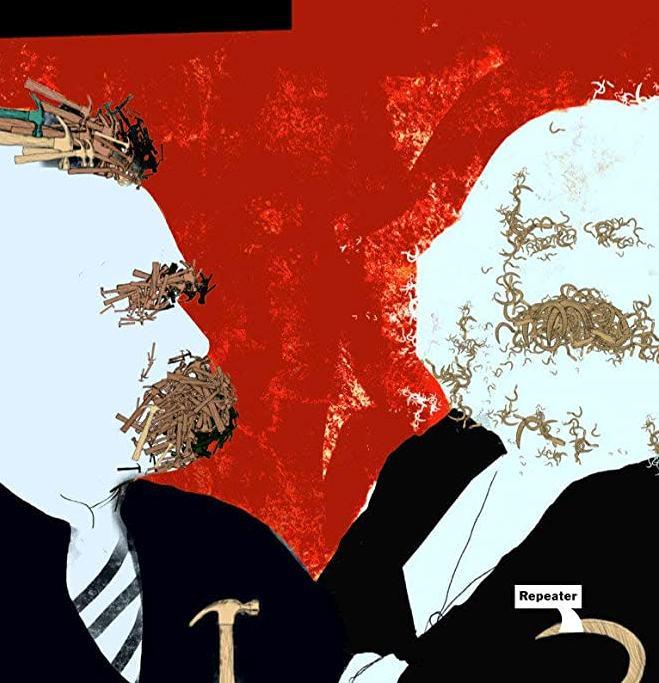
Because I know a lot about Marx and little about Nietzsche, I read How to Philosophize with a Hammer and Sickle: Nietzsche and Marx for the 21st-Century Left by Jonas Ceika
I have tried to read Nietzsche but texts that are sketchy even after reading them multiple times, resembling poetry, don’t qualify as serious work, so I gave up. I picked up some Nietzsche, reading The Man Without Qualities and When Nietzsche Wept, but that didn’t alter my opinion. Reading Ceika’s book brought to light some interesting points, but on the whole, I keep to Marx (and Gramsci, Althusser, …)
Ceika’s book falls far short of Marx’ 11th Theses on Feuerbach: “Philosophers have hitherto only interpreted the world in various ways; the point is to change it”. In short, it misses praxis, any reference to real struggle, even if only as a proposition because there is no more class struggle these days. It is a strictly academic exercise. His sparse positive remarks on BLM, LGBT and XR as struggle show he is not aware these are used by capital to keep people divided by promoting individualism and identity politics.
I will limit myself to critique on his Modernity / part 6:
1) Nietzsche yearned to transform the world, 2) the transformation he conceived of is contrary to the cold abstractions of both commerce and the state, and 3) the end-result of ….a [Nietzschean] transformation would be a new-found, human (or superhuman) control over the Earth (“the overman shall be the meaning of the earth!”15).
Capital has fully colonized the globe — there is no spot on the planet immune from capitalist social relations. There are, furthermore, no mechanisms internal to capitalism that would allow its influence to decrease. This influence is universal and indefinitely increasing, and there is no class and no nation independent of it. So long as one recognizes this, one must also recognize that Nietzsche’s dream of transforming the world is impossible if one does not address capital. And, further, given the stage of development at which capitalism operates, the only way to address capital is to destroy it. There are no means for moderating capital or limiting it, except those that aim for its destruction.
Capital can be destroyed by neither the state nor by itself. It can only be destroyed by the class which makes it possible but is simultaneously made to suffer under its mechanisms.
Apart from the “class” illusion, JC misses an essential point of Marx’ capital: capital is a human relation, more specific wage-labor. Labor is an integral part of capital. It can’t destroy capital without destroying itself. It can’t simply do away with the capital mode of production, because the worldwide division of labor can’t function without the objectification of men. Only when the material reproduction of men in all its dimensions is externalized in AI and robots, thus ending all labor, one could say capitalism has ceased to exist. But then, capital has destroyed itself, as human relation (wage-labor), creating precisely one overman (Übermensch) in the form of the AI singularity. With it, practical agency is taken from the human, leaving degenerated humanoids. A real destruction of capital – and the capitalist state – in the sense that it ends the worldwide division of labor will cost the lives of at least half the world population, leaving the rest in more primitive circumstances.
Transformation of capital and the state is possible and preferable to the alternative of destruction. This can limit objectification to an agreeable level. An important part is to limit further automating of labor and even revert some, in order to restore the possibility to be bodily active in a role that has real social utility.
Ceika expresses the belief that in a very distant future every human will have the possibility of becoming an overman, or that this should be the standard for which every single human should strive. This is ahistorical reasoning and not realistic. All men are brought up, disciplined and educated by “overslaves” and most of them will genetically not be able to escape, even if the overslaves will let them go. The goal should not be to abolish “slave morality” – in itself dubious – but to make “happy slaves” with some agency (= with less totalitarian control), ruled by an elite of compassionate overman who are not intent on profit or self-aggrandizement.
Just as destruction, a political struggle will have to take place to achieve this. This is impossible on a world scale, but there are small chances on the regional level of Europe, US and maybe China. Even then, the odds for success are very low, as Ceika acknowledges at the end of his book. Class and class-struggle are relics of the past. The only viable option is a “march through the institutions” capital, the state, media, social “science”. The chances for success are very small and get smaller each year.
So “equality of men” defined as a potential for everybody to develop in the direction of the overman, or have some hidden motivation to become one, is impossible. In fact, this is a projection of the author on all 8M human beings, that can never come true.
Another, less harsh critique can be found here